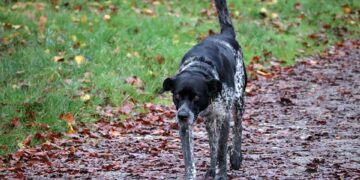[ad_1]
Perfect Pooches: Small Hypoallergenic Dogs that are a Breeze to Train
In the world of dog ownership, finding the perfect pooch that fits your lifestyle can be a challenging task. For those with allergies, the search becomes even more difficult as many breeds can trigger allergic reactions. However, there is hope for allergy sufferers who still want to experience the joys of having a furry companion. Small hypoallergenic dogs offer a solution for those who want a pet that is easy to train and won’t exacerbate their allergies.
What Makes Small Hypoallergenic Dogs Ideal
Small hypoallergenic dogs are the perfect combination of size, temperament, and coat type for allergy sufferers. These breeds typically have minimal shedding and produce less dander, making them less likely to trigger allergic reactions. Additionally, their small size makes them easier to manage and train compared to larger breeds.
Some popular small hypoallergenic dog breeds include the Bichon Frise, Maltese, Shih Tzu, and Yorkshire Terrier. These breeds are known for their friendly and affectionate nature, making them great companions for families and individuals alike. Their hypoallergenic coats require regular grooming to prevent matting and tangles, but their low shedding makes them a popular choice for allergy sufferers.
Benefits of Training Small Hypoallergenic Dogs
Training a small hypoallergenic dog comes with a range of benefits for both the owner and the pet. These breeds are known for their intelligence and eagerness to please, making them quick learners when it comes to obedience training. By investing time and effort into training your small hypoallergenic dog, you can establish a strong bond with your pet and ensure they are well-behaved in various situations.
Training your small hypoallergenic dog can also help prevent behavioral issues such as excessive barking, chewing, and jumping. By teaching your dog basic commands and socialization skills, you can create a well-rounded pet that is a joy to be around. Additionally, training can provide mental stimulation for your dog, keeping them engaged and preventing boredom.
Tips for Training Small Hypoallergenic Dogs
Training a small hypoallergenic dog requires patience, consistency, and positive reinforcement. Here are some tips to help you effectively train your furry companion:
1. Start Early: Begin training your small hypoallergenic dog as soon as you bring them home. Establish a routine and set boundaries to help your dog understand what is expected of them.
2. Use Positive Reinforcement: Reward your dog with treats, praise, and affection when they exhibit desired behaviors. Positive reinforcement helps reinforce good behavior and encourages your dog to continue learning.
3. Be Consistent: Consistency is key when training your small hypoallergenic dog. Use the same commands and cues consistently to avoid confusion and reinforce learning.
4. Keep Training Sessions Short and Fun: Dogs have short attention spans, so keep training sessions brief and engaging. Make training fun for your dog by incorporating games and interactive activities.
5. Seek Professional Help if Needed: If you are struggling with training your small hypoallergenic dog, consider seeking help from a professional dog trainer. A trainer can provide guidance and support to help you and your pet succeed.
Common Questions About Small Hypoallergenic Dogs
1. Are small hypoallergenic dogs suitable for families with children?
Yes, small hypoallergenic dogs can be great companions for families with children. These breeds are typically friendly, affectionate, and good with kids, making them ideal family pets.
2. Do small hypoallergenic dogs require a lot of grooming?
While small hypoallergenic dogs have low shedding coats, they do require regular grooming to prevent matting and tangles. Regular grooming can help maintain the health and appearance of your dog’s coat.
3. Are small hypoallergenic dogs easy to train?
Small hypoallergenic dogs are known for their intelligence and eagerness to please, making them relatively easy to train. With patience, consistency, and positive reinforcement, you can successfully train your small hypoallergenic dog.
4. Do small hypoallergenic dogs get along well with other pets?
Small hypoallergenic dogs can get along well with other pets if properly socialized and introduced. It is important to monitor interactions between your small hypoallergenic dog and other pets to ensure a harmonious relationship.
Conclusion
Small hypoallergenic dogs offer a great option for allergy sufferers who want a furry companion that is easy to train and manage. These breeds are known for their friendly nature, intelligence, and minimal shedding, making them ideal pets for families and individuals alike. By investing time and effort into training your small hypoallergenic dog, you can establish a strong bond with your pet and create a well-behaved and happy furry companion.
Whether you are a first-time dog owner or an experienced pet parent, small hypoallergenic dogs are a popular choice for those looking for a low-allergen pet that is a joy to be around. With the right training and care, your small hypoallergenic dog can bring endless love, companionship, and joy to your life.
[ad_2]














































